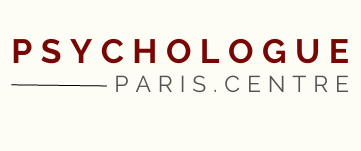Cognitive-Behavioral Therapy (CBT)
Cognitive-Behavioral Therapy (CBT) is a form of psychotherapy that aims to treat psychological problems by modifying dysfunctional thoughts and behaviors.
Cognitive-Behavioral Therapy (CBT)
Cognitive-Behavioral Therapy (CBT) is a form of psychotherapy that aims to treat psychological problems by modifying dysfunctional thoughts and behaviors. It is based on the idea that negative cognitions influence emotions and behaviors, and that negative or unrealistic thought patterns can lead to emotional or behavioral problems.
Negative cognitions can take the form of automatic thoughts, beliefs, or schemas. Automatic thoughts are rapid and spontaneous thoughts that occur in our minds, and they can be positive or negative. Beliefs are ideas we hold about ourselves, others, and the world, and they can be conscious or unconscious, and positive or negative. Schemas are patterns of thinking that repeat in our lives, and they can be positive or negative, and they can have a significant impact on our behavior and reactions to situations.
CBT is typically short-term and focused on the present. Instead of delving into past causes of disorders, it aims to find practical solutions to help the patient manage their current issues. It is structured, with clear goals and an active, participatory approach from the patient, who often has “homework” to complete between sessions.
CBT techniques include identifying and challenging unrealistic beliefs, problem-solving training, exposure to feared situations in a controlled and gradual manner, and teaching relaxation or stress management skills. It is effective for treating many disorders, including depression, anxiety disorders, phobias, post-traumatic stress disorder, eating disorders, and addictions.
CBT is collaborative; the therapist and the patient work together to understand the problems and develop strategies to overcome them. The patient learns to become their own therapist, with tools to cope with future challenges, which helps reduce the risk of relapse after therapy ends.
CBT is an effective treatment for a wide range of mental health disorders, including:
- Depression
- Anxiety
- Obsessive-Compulsive Disorders (OCD)
- Eating disorders
- Personality disorders
- Mood disorders
- Sleep disorders
CBT can also be used to treat physical health problems, such as:
- Chronic pain
- Gastrointestinal disorders
- Chronic illnesses
CBT is typically a short-term treatment, lasting from a few weeks to several months.
Common CBT techniques include:
- Identifying automatic thoughts: Automatic thoughts are rapid, unreflective thoughts that can be negative or irrational. CBT helps patients identify their automatic thoughts and challenge them.
- Cognitive restructuring: Cognitive restructuring is a process that allows the patient to identify and modify negative and dysfunctional thoughts that contribute to their problems, replacing automatic thoughts with more positive and realistic ones.
- Exposure: Exposure is a technique that helps patients confront their fears and anxieties in a controlled and gradual manner.
- Relaxation techniques: Relaxation techniques, such as deep breathing and progressive muscle relaxation, can help patients manage stress and anxiety.
- Social skills: This technique aims to help the patient develop more effective social skills.
Here are some examples of how CBT can be used to treat specific disorders:
- In the treatment of depression, CBT helps patients identify and modify negative thoughts that contribute to their depression. Patients can learn to focus on the positive aspects of their lives and adopt a more optimistic view of the future.
- In the treatment of anxiety, CBT helps patients identify the situations that trigger their anxiety and develop techniques to cope with them. Patients can learn to relax, confront their fears, and manage their stress.
- In the treatment of Obsessive-Compulsive Disorders (OCD), CBT helps patients identify and challenge their obsessive thoughts. Patients can learn to resist their compulsions and develop relaxation techniques to manage their anxiety.
CBT is an evidence-based and effective form of psychotherapy recognized by the World Health Organization (WHO) for helping people with mental health disorders improve their quality of life.
